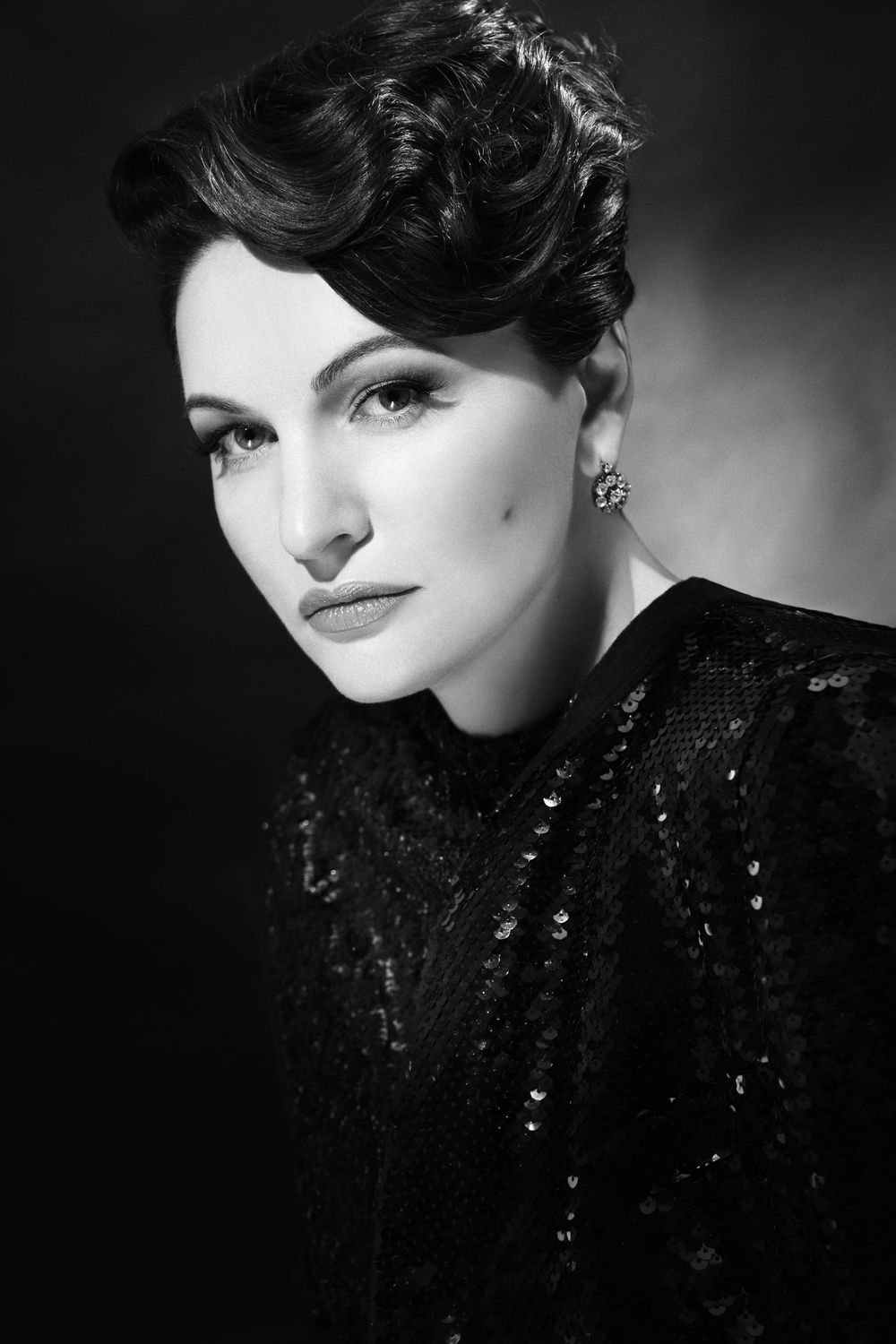She is one of the few Russian singers that can unhesitatingly be referred to as a true opera diva. Hibla Gerzmava, Honoured Artist of Russia and People’s Artist of the Republic of Abkhazia is unique on the Russian opera scene. She is gifted with an extraordinary and bright talent and an emotional and passionate temperament. Not only has she performed major parts in the most famous operas, she is also a uniquely talented actress, capable of basing her interpretation of the heroine’s persona not only on the director’s instructions, but also by relying on her own, unfailing intuition. Perhaps Hibla inherited her artistry and energy from the blessed Black Sea region in which she was born and grew up. The date of her birth was ones once the Holiday of Christmas for all Christians, but is now a “red letter day” only for Armenians, Syrians and Greeks: she was born on January 6 in sunny Pitsunda. In subtropical Gagra, Hibla went to music school and subsequently continued her musical education in the Sukhum Music College. However, she initially trained not as a singer, but as a pianist. Until she was 18, the future star of the Stanislavski and Nemirovich-Danchenko Moscow Academic Music Theatre did not consider a career in singing. She composed songs and loved to sing, but none of her friends and family took this very seriously. It was her piano teacher who was able to spot his pupil’s extraordinary talent and sent Hibla to Josephina Bumburidi for vocal coaching. This is how it all started, and by 1989 her wonderful voice could be heard during the entrance examinations for the Moscow Conservatory, where she was to be taught by Irina Maslennikova and Evgeniya Arefieva. While developing her voice, the pianist Gerzmava nevertheless did not allow herself to rest and took extra-curricular organ lessons at the Conservatory. It could be that her professional instrumental skills now help the singer to get a better feel for the score and to perform each part with greater expression. This applies to both orchestra and piano accompaniments, during which she displays a fine sense of the instruments’ intonational specificities and manages to use these to enhance the effect her colourful soprano voice has on the audience. Hibla Gerzmava has received many awards at international singing competitions. Her first was at Voci Verdiani (“Verdi’s Voices”), which takes place in Busseto (Italy), and where she won 3rd Prize in 1993. The year 1994 was an especially successful year in terms of winning prizes for her singing talent: she won two 2nd Prizes, at the Francisco Vinas Competition in Barcelona and at the International Rimsky-Korsakov Competition in St. Petersburg. Her participation in the 10th International Tchaikovsky Competition in Moscow brought Hibla Gerzmava the Grand Prix. After joining the Moscow Academic Music Theatre in 1995, Hibla Gerzmava became the opera troupe’s brightest star, thanks to the astonishing degree of mutual understanding and the fruitful artistic union between herself and the theatre’s artistic director, Alexander Titel’. The singer’s strong and pure voice together with her dramatic gift helped to create the unforgettable personae of Adele in Die Fledermaus, Adina in Donizetti’s L’elisir d’amore, Mimi in Puccini’s La boheme, Louise in Prokofiev’s Betrothal in a Monastery, Rosina in Rossini’s Il Barbiere di Siviliglia, Liudmila in Glinka’s Ruslan and Liudmila, the Swan in Rimsky-Korsakov’s The Tale of Tsar Saltan and, of course, Violetta in Verdi’s La Тraviata. In 2001 Hibla Gerzmava received the “Golden Orpheus” (category — Best Singer) at the eponymous opera festival. Between 2002 and 2004 she accompanied the Moscow Academic Music Theatre’s troupe on tours to the US and South Korea, as well as taking part in the Ludwigsburger Schlossfestspiele, where she performed the parts of Eva (in Haydn’s Creation) and the Guardian Angel (De’ Cavalieri’s Rappresentatione di Anima, et di Corpo). For her performance of Lucia in the opera Lucia di Lammermoor, which enthralled her critics, audience and colleagues alike, she received the Russian National Prize “The Golden Mask” in 2010. That same year, she also received the “Casta Diva” Prize (category — Best Singer), as well as the Moscow Prize (category — Literature and the Arts). Today Hibla Gerzmava is one of the most popular Russian singers on European stages. She has sung at the Theatre des Champs-Elysees and Theatre du Chatelet in Paris, the Teatro Comunale di Firenze, at the National Opera in Sofia, the Gran Teatre del Liceu in Barcelona and the Palau de les Arts Reina Sofia in Valencia. Hibla Gerzmava has performed at the Mariinsky Theatre in St. Petersburg and the Tokyo Bunka Kaikan. In 2008 she had her debut at the Royal Opera House in London, where she sang the part of Tatiana in Tchaikovsky’s Evgeny Onegin. In October 2010 Hibla debuted on the Metropolitan Opera’s stage, where she gave a wonderful performance of the parts of Stella/Antonia in a production of Offenbach’s Les Contes d’Hoffmann. She performs with outstanding Russian and foreign musicians and conductors such as Lorin Maazel, Vladimir Spivakov, Valery Gergiev, Alexander Rudin, Mikhail Pletnev, Vladimir Fedoseev, Vasily Sinaisky, Antonio Pappano, Jiri Belohlavek, Wolf Gorelik, Felix Koroborov and many others. Despite her full agenda and repertoire, the singer finds time to tour with concert programmes to France, Austria, Belgium, the Netherlands, Greece, Spain, the US, Japan, Sweden, Turkey and across Russia. She became one of the organisers of the “Hibla Gerzmava Invites...” Festival in her homeland Abkhazia. Hibla is a versatile person who is not afraid to take risks and loves to experiment. Her concert programme with the brilliant pianist Daniel Kramer’s Jazz Trio “Opera. Jazz. Blues” became one of the highlights of Moscow’s cultural life. A great lover of jazz, Hibla is continuing her artistic explorations with such fascinating musicians as Denis Matsuev, Deborah Brown, Yakov Okun’s MosGorTrio, Mikhail and Andrey Ivanov (“Ivanov Brothers”) and Valery Grokhovsky. The accomplished musician Georgy Garanyan, who passed away unexpectedly in February 2010, was one of Hibla’s favourite partners in the world of jazz. A genuine New Year gift for Hibla became the first independent award for the highest achievements of art and literature “Triumph”. This is one of the most valuable prizes, as winners are chosen by a jury of peers — known people of different artistic professions. “Hibla” means “golden-eyed” in Abkhazian. Maybe that is why her eyes are always shining. However, the precious gift through which she captivates millions of listeners is undoubtedly her golden voice.





















